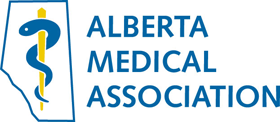Is it therapeutic failure or is she forgetting to take her pills?
March 2, 2020

 Contributed by:
Contributed by:
Dr. Vivian Ewa (Click for bio)
Case
Mrs. Home is a 75-year-old retired teacher who lives alone in a seniors’ independent living apartment. She’s had three emergency room visits in the last six months for hyperglycemia and poor blood pressure control. Her past medical history is significant for type 2 diabetes, hypertension, previous stroke, chronic kidney disease, coronary artery disease and osteoarthritis. Her medications include:
|
|
Her blood pressures range from 160 to 170 systolic and her latest Hba1c was 10.3% up from 9.0% three months prior.
Background
An increasing number of older adults in Canada are living with chronic disease. In 2012, 24% of seniors 65 years and above reported three or more chronic medical conditions and accounted for 40% of the health care use in seniors.1,2 55% of public drug program spending was on prescription medication.3 Older adults with chronic multimorbidity are at risk of polypharmacy and adverse effects.3,4 Non-adherence to medications in the older adult is more common than in the younger population5 and consequences more profound due to frailty.4 It is estimated that medication non-adherence may occur in up to 50% of older adults resulting in increased morbidity and utilization of health care resources.4,6-8 Consequences of non-adherence to prescribed medications include multiple office visits, recurrent emergency department visits and hospitalizations. Hospitalization costs due to poor medication compliance could be as high as $100 billion with significant impact on quality of life and overall public health.4 There are several reasons for poor compliance to prescribed medications, which include patient related factors, medication regimen, health care provider factors, health system organization and socioeconomic factors.4,9 Identifying and addressing these factors early can improve therapeutic compliance and reduce adverse outcomes.
Addressing non-adherence to prescribed medications in the older adult
Patient related factors such as impaired cognition and mood disorders can impact adherence to therapy. Patients with impaired memory may not remember to take their pills or have difficulty following instructions on how to take them.10 Impaired physical function such as decreased mobility, poor hand dexterity and declining vision can make it difficult for the older adult to adhere to therapy. A comprehensive geriatric assessment11 that includes a cognitive, mood and physical assessment can help identify some of these factors and inform strategies to address them.12 Behavioral factors such as perceived benefit of the medication and concerns with side effects should be explored during the medication review.13 Asking the patient to describe how and when medications are taken in addition to asking about potential side effects can provide valuable information on compliance.
Medication factors such as the formulation, packaging, dosing regime, drug adverse effects and labelling can influence compliance.7 Complicated dose schedules such as multiple doses in the day with complex instructions can prove challenging to patients, especially the elderly. Simplifying drug regimes to once daily can improve compliance,14 and using easy to open vials is especially helpful for those with poor motor dexterity. The cost of medications could also be a reason for poor compliance, especially in seniors who have a fixed income, so switching to formulary or less costly alternatives can be helpful in this case.
Health care providers can play a major role in improving medication adherence by communicating rationale for medication use and discussing potential adverse effects.15 Regular follow-up to explore compliance, or lack of, can help identify problems earlier. A Medication assistance program by Home Care staff can help improve compliance in older adults who have difficulty managing medications due to cognitive, functional or mental health issues.4 Medication assistance ranges from reminders to medication administration.
Back to case
Mrs. Home admits to forgetting to take her pills sometimes. She reports difficulties with poor short-term memory over the last few months but does not think it has affected her activities of daily living. Her daughter reports worsening short term memory over the last year with significant decline in the last six months. Pills have been seen on the kitchen countertop and family express concerns with late bill payments. Medication non-adherence is confirmed by inconsistent medication refills and multiple vials of unused pills. She scores 22/30 on the Mini-Mental State Examination and is referred to Home Care for care needs assessment and medication assistance program. Medications are blister packed and drug regime simplified to allow once daily dosing as much as possible. Home Care assists with blood sugar and blood pressure monitoring. Insulin is discontinued and blood pressure pills are adjusted to minimize risk of hypoglycemia and hypotension. Blood sugar and blood pressure records show significant improvement with overall improvement in function and quality of life.
Bottom line
If the medication is not taken, it cannot work. Medication non-adherence results in suboptimal management of chronic diseases and increased risk of adverse outcomes. Multiple medications with a complex medication regime can further compound this risk, especially in seniors living alone. Considering possible medication non-adherence as the cause of therapeutic failure is crucial to avoiding polypharmacy and increased risk of adverse health outcomes.
References
- Canadian Institutes of Health Research. Living Longer, Living Better. In: Plan. CIoHRIoA-S, editor. Ottawa: Canadia Institute of Health Research; 2013.
- Canadian Institute for Health Information. Seniors and the Health Care System: What is the Impact of Multiple Chronic Conditions? Ottawa; 2011.
- Information CIfH. Drug use among seniors in Canada, 2016. CIHI Ottawa, ON; 2018.
- Rodgers JE, Thudium EM, Beyhaghi H, Sueta CA, Alburikan KA, Kucharska-Newton AM, et al. Predictors of Medication Adherence in the Elderly: The Role of Mental Health. Med Care Res Rev. 2018;75(6):746-61.
- Chiang-Hanisko L, Tan J-Y, Chiang L-C. Polypharmacy issues in older adults. Hu li za zhi. 2014;61(3):97.
- Osterberg L, Blaschke T. Adherence to medication. N Engl J Med. 2005;353(5):487-97.
- Marcum ZA, Hanlon JT, Murray MD. Improving Medication Adherence and Health Outcomes in Older Adults: An Evidence-Based Review of Randomized Controlled Trials. Drugs Aging. 2017;34(3):191-201.
- Hughes CM. Medication non-adherence in the elderly: how big is the problem? Drugs Aging. 2004;21(12):793-811.
- Sabaté E, Sabaté E. Adherence to long-term therapies: evidence for action: World Health Organization; 2003.
- Insel K, Morrow D, Brewer B, Figueredo A. Executive function, working memory, and medication adherence among older adults. The Journals of Gerontology Series B: Psychological Sciences and Social Sciences. 2006;61(2):P102-P7.
- Stuck AE, Iliffe S. Comprehensive geriatric assessment for older adults. Bmj. 2011;343:d6799.
- Marengoni A, Monaco A, Costa E, Cherubini A, Prados-Torres A, Muth C, et al. Strategies to Improve Medication Adherence in Older Persons: Consensus Statement from the Senior Italia Federanziani Advisory Board. Drugs Aging. 2016;33(9):629-37.
- Schüz B, Marx C, Wurm S, Warner LM, Ziegelmann JP, Schwarzer R, et al. Medication beliefs predict medication adherence in older adults with multiple illnesses. Journal of psychosomatic research. 2011;70(2):179-87.
- Ingersoll KS, Cohen J. The impact of medication regimen factors on adherence to chronic treatment: a review of literature. Journal of behavioral medicine. 2008;31(3):213-24.
- Holt E, Joyce C, Dornelles A, Morisky D, Webber LS, Muntner P, et al. Sex differences in barriers to antihypertensive medication adherence: findings from the cohort study of medication adherence among older adults. Journal of the American Geriatrics Society. 2013;61(4):558-64.
